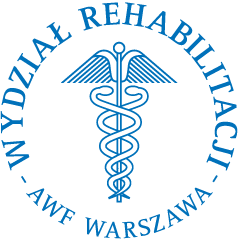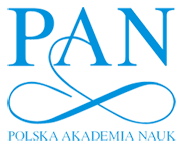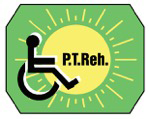


|
Current issue
Archive
Manuscripts accepted
About the journal
Editorial board
Reviewers
Abstracting and indexing
Contact
Instructions for authors
Publication charge
Ethical standards and procedures
Editorial System
Submit your Manuscript
|
4/2023
vol. 37 Original article
Psychological resilience and parents’ engagement in paediatric physiotherapy
Anna Karolina Kloze
1
,
Aleksandra Buchholz
1
Advances in Rehabilitation, 2023, 37(4), 51–59
Online publish date: 2023/12/28
Article file
- 2023-04-ar-06-popr.pdf
[0.47 MB]
ENW EndNote
BIB JabRef, Mendeley
RIS Papers, Reference Manager, RefWorks, Zotero
AMA
APA
Chicago
Harvard
MLA
Vancouver
1. Sullivan RCH, Ward D, Faragoh E, Hagamen, MB, Foster RE, Vigna GW. The burn-out syndrome. J Autism Dev Disord. 1979; 9(1): 111–26. 2.
Sekułowicz M. Burning out the strength of parents of children with disabilities. Wrocław: Wydawnictwo Naukowe Dolnośląskiej Szkoły Wyższej; 2013. 3.
Rusinek K. Burnout syndrome in mothers raising a child with intellectual disabilities. Szkoła Specjalna. 2015; 1(277): 16–27. 4.
Twardowski A. Situation of families of children with disabilities. In: Obuchowska I, editor. Child with disabilities in the family. Warszawa: WSiP; 1999. p. 18–57. 5.
Błeszyński JJ. Rodzina jako środowisko osób z autyzmem. Aspekt wychowawczo-terapeutyczny. Toruń: Wydawnictwo UMK; 2004. 6.
Bontje MCA, De Ronde RW, Dubbeldeman EM, Kamphuis M, Reis R, Crone MR. Parental engagement in preventive youth health care: Effect evaluation. Child Youth Serv Rev. 2021; 120: 105724. 7.
Salehian MH. The predictive role of psychological toughness and adaptability on the actual well-being of mothers with handicapped children. Afri Health Sci. 2022; 22(1): 611–18. 8.
McKenna O, Fakolade A, Cardwell K, Langlois N, Jiang, K, Pilutti LA. Towards conceptual convergence: A systematic review of psychological resilience in family caregivers of persons living with chronic neurological conditions. Health Expect. 2022; 25(1): 4–37. 9.
American Psychological Association. The Road to Resilience. Washington DC: American Psychological Association [Internet]. 2014 [cited 2023 May 15]; [about 1 p.]. Available from: http://www.apa.org/helpcenter/road resilience.aspx 10.
Semmer N. Personality, stress and coping. In: Vollrath M, editor. Handbook of personality and health. Chichester: Wiley; 2006. p. 73–113. 11.
Ruiz-Robledillo N, De Andres-Garcıa S, Perez-Blasco J, Gonzalez-Bono E, Moya-Albiol L. Highly resilient coping entails better perceived health, high social support and low morning cortisol levels in parents of children with autism spectrum disorder. Res Dev Disabil. 2014; 35(3): 686–95. 12.
Southwick SM, Charney DS. Resilience: the science of mastering life’s greatest challenges: ten key ways to weather and bounce back from stress and trauma. New York: Cambridge University Press; 2012. 13.
King G, Williams L, Goldberg SH. Family-oriented services in pediatric rehabilitation: a scoping review and framework to promote parent and family wellness. Child Care Health Dev. 2017; 43(3): 334–47. 14.
Kokorelias KM, Gignac MAM, Naglie G, Cameron JI. Towards a universal model of family centered care: a scoping review. BMC Health Serv Res. 2019; 19(564): 1–11. 15.
Phoenix M, Jack SM, Rosenbaum PL, Missiuna C. A grounded theory of parents' attendance, participation and engagement in children's developmental rehabilitation services: Part 2. The journey to child health and happiness. Disabil Rehabil. 2020; 42(15): 2151–60. 16.
Smith KA, Samuels AE. A scoping review of parental roles in rehabilitation interventions for children with developmental delay, disability, or long-term health condition. Res Dev Disabil. 2021; 111(2): 103887. 17.
King G, Currie M, Petersen P. Child and parent engagement in the mental health intervention process: a motivational framework. Child Adolesc Ment Health. 2014; 19(1): 2–8. 18.
Aitken ME, Korehbandi P, Parnell D, Parker JG, Stefans V, Tompkins E, et al. Experiences from the development of a comprehensive family support program for pediatric trauma and rehabilitation patients. Arch Phys Med Rehabil. 2005; 86(1): 175–179. 19.
King G, Tucker MA, Baldwin P, LaPorta J. Bringing the life needs model to life: implementing a service delivery model for pediatric rehabilitation. Phys Occup Ther Pediatr. 2006; 26(6): 43–70. 20.
Karabulut DG, Akbaş AN. Parents of children with developmental disability have insufficient knowledge about healthy sleep in children. Adv Rehab. 2023; 37(2): 38–47. 21.
McConnell D, Parakkal M, Savage A, Rempel G. Parent-mediated intervention: adherence and adverse effects. Disabil Rehabil. 2015; 37(10): 864–72. 22.
Kovács K, Kovács KE, Bacskai K, Békési Z, Oláh ÁJ, Pusztai, G. The Effects and Types of Parental Involvement in School-Based Sport and Health Programs Still Represent a Knowledge Gap: A Systematic Review. Int J Environ Res Public Health. 2022; 19(19): 12859. 23.
Nagy BE, Kovács KE, Varga T, Boris P, Józsa T, Oláh R. A review on children and adolescents’ mental health indicators: Towards a valid mental health assessment in Hungarian youth. Cogn Brain Behav Interdiscip J. 2021; 25(4): 357–83. 24.
Rajan AM, John R. Resilience and impact of children's intellectual disability on Indian parents. J Intellect Disabil. 2017; 21(4): 315–324. 25.
Luo YH, Li WHC, Cheung AT, Ho LLK, Xia W, He XL, et al. Relationships between resilience and quality of life in parents of children with cancer. J Health Psychol. 2021; 27(5): 1048–56. 26.
Ogińska-Bulik N, Juczyński Z. Skala pomiaru prężności-SPP-25. Nowiny Psychologiczne. 2008; 3: 39–55. 27.
D'Arrigo R, Ziviani J, Poulsen AA, Copley J, King G. Measures of Parent Engagement for Children Receiving Developmental or Rehabilitation Interventions: A Systematic Review. Phys Occup Ther Pediatr. 2018; 38(1): 18–38. 28.
Taczała J, Perenc L, Szmurło M, Wolińska O, Maciąg-Tymecka I, Majcher P. Monitoring the development of infant and children at risk of disability. Recommendations of the Children and Youth Rehabilitation Section of the Polish Rehabilitation Society. Adv Rehab 2021; 35(1): 47–54. 29.
World Health Organization. International classification of functioning, disability and health: children and youth version: ICF-CY. World Health Organization. [Internet]. 2007 [cited 2023 June 1]: [351 p.]. Available from: https://apps.who.int/iris/handle/10665/43737 30.
Imms C, Granlund M, Wilson PH, Steenbergen B, Rosenbaum PL, Gordon AM. Participation, both a means and an end: a conceptual analysis of processes and outcomes in childhood disability. Dev Med Child Neurol. 2017; 59(1): 16–25. 31.
Phoenix M, Jack SM, Rosenbaum PL, Missiuna C. Parents' attendance, participation and engagement in children's developmental rehabilitation services: Part 1. Contextualizing the journey to child health and happiness. Disabil Rehabil. 2020; 42(15): 2141–50. 32.
DeVellis RF. Scale Development: Theory and Applications. Los Angeles: Sage Publications; 2017. 33.
American Psychological Association. Ethical principles of psychologists and code of conduct. [Internet]. 2010 [cited 2023 May 22]: [18 p.]. Available from: http://www.apa.org/ethics/code/principles.pdf 34.
Andrioni F, Coman C, Ghita RC, Bularca MC, Motoi G, Fulger IV. Anxiety, Stress, and Resilience Strategies in Parents of Children with Typical and Late Psychosocial Development: Comparative Analysis. Int J Environ Res Public Health. 2022; 19(4): 2161. 35.
Riany YE, Cuskelly M, Meredith P. Parenting Style among Indonesian Parents of a Child with Autism Spectrum Disorder: Associations with Socio-Economic Status and Social Supports. J Dev Phys Disabil. 2019; 31: 267–283. 36.
Salleh NS, Abdullah KL, Yoong TL, Jayanath S, Husain M. Parents' Experiences of Affiliate Stigma when Caring for a Child with Autism Spectrum Disorder (ASD): A Meta-Synthesis of Qualitative Studies. J Pediatr Nurs. 2020; 55: 174–183. 37.
Hassanein EEA, Adawi TR, Johnson ES. Social support, resilience, and quality of life for families with children with intellectual disabilities. Res Dev Disabil. 2021; 112: 103910. 38.
Singh KK, Kumar A. Resilience in Mothers having Children with Disabilities. Chettinad Health City Med J. 2022; 11(3): 23–9. 39.
Gugliandolo MC, Liga F, Larcan R, Cuzzocrea F. Parents of children with developmental disorders: Family hardiness and resilience. J Intellect Dev Disabil. 2023; 48(3): 334–9. 40.
Pyszkowska A, Wrona K. Self-compassion, ego-resiliency, coping with stress and the quality of life of parents of children with autism spectrum disorder. Peer J. 2021; 3(9): e11198. 41.
Dharshini D, Punithavathi SP. Influence of Emotional Maturity and Resilience in Coping among Parents of Kids with Autism and Intellectual Disability. J Ment Health Issues Behav. 2023; 3(4): 1–9. 42.
Fritz HL. Coping with caregiving: Humor styles and health outcomes among parents of children with disabilities. Res Dev Disabil. 2020; 104: 103700. 43.
Miranda A, Mira A, Berenguer C, Rosello B, Baixauli I. Parenting Stress in Mothers of Children With Autism Without Intellectual Disability. Mediation of Behavioral Problems and Coping Strategies. Front Psychol. 2019; 10: 464. 44.
Nakaya M, Oshio A, Kaneko H. Correlations for Adolescent Resilience Scale with big five personality traits. Psychol Rep. 2006; 98(3): 927–30. 45.
Folkman S. Questions, answers, issues, and next steps in stress and coping research. Eur Psychol. 2009; 14 (1): 72–77. 46.
Werner EE, Smith RS. Journeys from childhood to midlife: risk, resilience, and recovery. Ithaca, New York: Cornell University Press; 2001. 47.
Masten AS, Obradović J. Competence and resilience in development. Ann N Y Acad Sci. 2006; 1094: 13–27. 48.
Moreau KA, Cousins JB. Making program evaluation activities family-centered: a qualitative study. Disabil Rehabil. 2014; 36(11): 948–58. 49.
Costa UM, Brauchle G, Kennedy-Behr A. Collaborative goal setting with and for children as part of therapeutic intervention. Disabil Rehabil. 2017; 39(16): 1589–1600. 50.
Fredrickson BL. The broaden-and-build theory of positive emotions. Philos Trans R Soc Lond B Biol Sci. 2004; 359(1449): 1367–78. 51.
Alim TN, Feder A, Graves RE, Wang Y, Weaver J, Westphal M, et al. Trauma, resilience, and recovery in a high-risk African-American population. Am J Psychiatry. 2008; 165(12): 1566–75. 52.
Skodol AE. The resilient personality. In: Reich JW, Zatura AJ, Hall JS, editors. Handbook of Adult Resilience. New York, London: The Guilford Press; 2010. p. 112–25. 53.
Kloze A, Wojtal Z. Assessment of online physiotherapy consultation for children – parents' opinions. Adv Rehab. 2021; 35(2): 32–9. 54.
Al-Jadiri A, Tybor DJ, Mulé C, Sakai C. Factors Associated with Resilience in Families of Children with Autism Spectrum Disorder. J Dev Behav Pediatr. 2021; 42(1): 16–22.
This is an Open Access journal, all articles are distributed under the terms of the Creative Commons Attribution-NonCommercial-ShareAlike 4.0 International (CC BY-NC-SA 4.0). License (http://creativecommons.org/licenses/by-nc-sa/4.0/), allowing third parties to copy and redistribute the material in any medium or format and to remix, transform, and build upon the material, provided the original work is properly cited and states its license.
|
    |